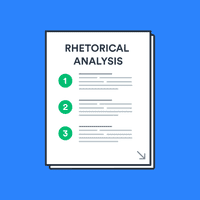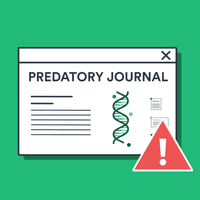Is it a good thesis topic?

Before starting the actual research for your thesis, you need to make sure that your topic is well formed. Take a look at this list of questions to find out if your topic is ready to work on.
- Does the topic have a clear aim?
- Is the topic researchable?
- Is the topic original enough?
- Will the topic be interesting to your audience?
- What methodology will your topic require?
Does the topic have a clear aim?
First things first, is your topic clear enough? The ideal path of deciding a topic starts by making it as comprehensive as possible. This is easier said than done, as people often have one idea in mind but another one in the paper.
As James Hamilton, coach for Ph.D. students, concludes in his guide on finding a thesis topic “clarity is the key.” Therefore, we recommend explaining your topic to someone foreign to your field.
Dissect every part of the topic and describe them in the most simple way. This will help you see your topic from a different perspective. Once you have a simplified version, you can start adding layers of complexity.
Is the topic researchable?
Once you are sure the topic is crystal clear, it is time to find out the most important factor: does the topic offer enough information? If you came up with the topic from material you read before, or you heard about it in a lecture, it means the topic is probably highly researchable.
Use keywords related to your topic and search for them in:
- library catalogs
- academic databases
- academic search engines
- Google scholar
- academic repositories
Consider meeting with an academic librarian, who can help you generate keywords.
Is the topic original enough?
Every thesis requires a level of originality but, let's be honest, research is never completely original. Still, why not make it as original as you can within your limits? You will dive in a sea of papers with a similar approach to yours. This is your chance of finding an angle that has never been taken before.
Therefore, we recommend finding a gap in the research, or a certain angle that has been done before but could be further developed. How? By simply paying particular attention to your sources.
Will the topic be interesting to your audience?
Academic writing shouldn’t be boring. Depending on the level of your thesis, its appeal will vary. Identify the audience of your thesis and adapt its style and structure accordingly.
A bachelor’s thesis has to be interesting for the professor who grades it it. An MA thesis should attract your supervisor, and potential future employers. A Ph.D. thesis should strive to make a clear intervention in the field that will catch the attention of other scholars. It should engage peers, supervisor, and general researchers.
Once you know who you are writing for, it becomes easier to adapt your style to your target audience. We also recommend these 13 ways to make your writing more interesting to read.
What methodology will your topic require?
Picking a suitable research methodology is one of the most important components that can make a project fail or succeed.
Being aware of what type of outcome you want and how much time you have to conduct research will help you choose the right methodologies. For example, if you want qualitative data and you have enough time, then you can carry out a focus group.
If you want quantitative data in a short period of time then an online survey suffices. Time and goal will be the decisive factors in almost every project.
Check out our guide on How to gather data for your thesis for further instructions on collecting empirical data and choosing a methodology.
- Qualitative: focus groups, interviews, literature reviews, etc.
- Quantitative: surveys, experiments, longitudinal studies, etc.
Additional criteria for a good thesis topic
You might also ask yourself these questions when you are assessing if your thesis topic is good:
- Is the topic easy to find?
- Is the topic of interest in contemporary culture?
- Will the topic bring you any benefit after graduation?
Frequently Asked Questions about having a good thesis topic
🌈 How to know if my thesis topic is original?
Every thesis requires a level of originality but let's be honest, research is never completely original. To have an original topic, we recommend finding a gap in the research. How? By simply finding a certain angle that has been done before but could be further developed.
👨🎤 How to make a thesis topic interesting?
Academic writing shouldn’t be boring. In order to make it interesting, you should identify the audience of your project and adapt it accordingly. A bachelor’s thesis has to be interesting for the professor who grades it it. An MA thesis should attract your supervisor, and potential future employers. A Ph.D. thesis should strive to make a clear intervention in the field that will catch the attention of other scholars.
🍸 How to know if my thesis topic is clear?
We recommend explaining your topic to someone foreign to your field. Dissect every part of the topic and describe it in the most simple way. This will help you see your topic from a different perspective.
👩💻 How to know if my thesis topic is researchable?
If you came up with the topic from material you read before, or you heard about it in a lecture, it means the topic is probably highly researchable. Use keywords related to your topic and search for them in catalogs, databases, search engines, and libraries.
🗣️ What questions can I ask myself to know if my thesis topic is good?
Some other questions you can ask yourself (or others) to know if your thesis topic is good:
- Will the topic bring you any benefit after graduation?
- Is the topic of interest in contemporary culture?
- Is the topic easy to find?


